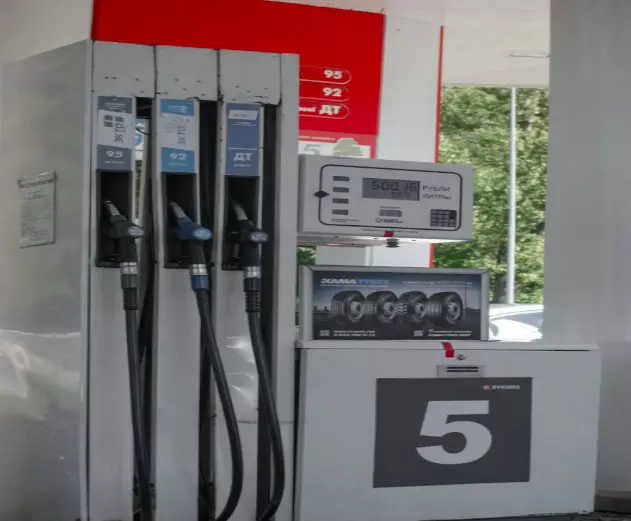Special 95 vs Super 98 – Understanding the Difference in UAE Petrol Grades
Understanding the Difference in UAE Petrol Grades

When you drive into a petrol station in the UAE, the pump gives you two main choices: Special 95 and Super 98. Both are unleaded fuels, both are clean, and both keep your car moving. But which one should you use? And more importantly, what’s the actual difference between them?
The debate of special 95 vs super 98 is one that many UAE drivers face regularly. Choosing the right petrol is not only about saving money but also about protecting your engine and getting the best performance. Let’s explore the differences between these two fuel types and help you decide which one is right for your vehicle.
What Do Octane Ratings Mean?
The octane rating, also called RON (Research Octane Number), is what separates Special 95 from Super 98.
- Special 95 → 95 RON
- Super 98 → 98 RON
The octane number indicates how resistant the fuel is to knocking (also known as pinging or pre-ignition). Knocking happens when fuel ignites too early in the combustion chamber, causing inefficient burning, poor performance, and possible engine damage.
- Higher octane = better resistance to knocking.
- Lower octane = suitable for standard engines that don’t require high compression.
Special 95: The Practical Choice
Special 95 is the go-to fuel for the majority of drivers in the UAE. It’s designed for engines with medium compression ratios, which are found in most daily-use vehicles like compact cars, family SUVs, and sedans.
Advantages of Special 95
- More affordable than Super 98, making it the cost-effective option for long-term use.
- Compatible with most vehicles on UAE roads.
- Delivers reliable performance for everyday driving, commuting, and city trips.
Who Should Use Special 95?
- Drivers of economy cars, mid-range sedans, and crossovers.
- Anyone whose car manual specifies 95 RON fuel as the requirement.
- People looking to reduce fuel expenses without compromising safety or efficiency.
Super 98: The Premium Option
Super 98 is recommended for engines with high compression ratios, typically found in luxury and performance vehicles. These engines generate more power and heat, and they require fuel that won’t pre-ignite under pressure.
Advantages of Super 98
- Protects high-performance engines from knocking.
- Ensures smoother power delivery and stronger acceleration.
- Maximizes fuel efficiency in cars specifically designed for 98 RON petrol.
Who Should Use Super 98?
- Owners of luxury cars, sports cars, and turbocharged models.
- Drivers of vehicles where the manufacturer specifies 98 RON minimum.
- Anyone seeking maximum performance and smooth operation from their engine.
Special 95 vs Super 98: A Side-by-Side Comparison
Feature | Special 95 | Super 98 |
Octane Rating | 95 RON | 98 RON |
Best For | Standard engines, family cars | Luxury cars, high-performance cars |
Price | Lower | Higher |
Performance | Adequate for normal driving | Optimized for powerful engines |
Fuel Efficiency | Good for daily use | Excellent in engines tuned for 98 |
Common Myths About 95 and 98
1. “Super 98 will always give more power.”
Not true. If your car is designed for 95 RON fuel, using 98 won’t make it faster or more powerful.
2. “Using Special 95 in a Super 98 car is fine.”
This is risky. While your car may run, it could suffer from knocking, reduced efficiency, and long-term engine wear.
3. “Mixing 95 and 98 is harmful.”
In reality, it’s safe. The result is simply an average octane level between the two. However, it’s still best to stick with what your manufacturer recommends.
Price Considerations in the UAE
The UAE fuel market adjusts prices monthly, and the difference between Special 95 and Super 98 is usually small—but it adds up over time. For example:
- Special 95 might cost AED 2.50 per liter.
- Super 98 could be AED 2.61 per liter.
For drivers who clock thousands of kilometers per month, this small per-liter difference can mean hundreds of dirhams annually. Unless your engine needs Super 98, Special 95 is the more economical choice.
How to Know Which Fuel Your Car Needs
The easiest way to decide between Special 95 vs Super 98 is to check your owner’s manual or fuel cap.
- If it says 95 RON minimum → You can safely use Special 95. Super 98 won’t harm your car, but it won’t add extra benefits either.
- If it says 98 RON recommended → You can use Special 95 occasionally, but your car will perform best with Super 98.
- If it says 98 RON only → Always use Super 98. Anything less could cause engine problems.
Environmental Factors
Both Special 95 and Super 98 in the UAE are unleaded and meet high environmental standards. While Super 98 may burn slightly cleaner in optimized engines, there’s no significant eco-friendly advantage for standard vehicles. Regular maintenance and timely servicing have a much bigger impact on emissions than fuel grade choice.
Final Thoughts: Which Fuel is Better?
So, in the special 95 vs super 98 debate, which one should you choose?
- Special 95 → Best for everyday cars, budget-conscious drivers, and anyone whose manual specifies 95 RON fuel.
- Super 98 → Essential for luxury cars, performance vehicles, and engines requiring high octane to prevent knocking.
The bottom line: use the fuel your manufacturer recommends. It’s the simplest way to balance cost, performance, and engine health. Spending extra on Super 98 won’t magically upgrade your car if it doesn’t need it, but using too low an octane in a high-performance car can be costly in the long run.

